Does performing strenuous exercise regularly at gym workouts or classes affect the health of your scalp and your hair?
Essential body organs and systems receive energy provided from dietary intake as a priority over hair — hair is a non-essential tissue. If you exercise several times per week and are seeing a noticeable deterioration in the condition of your scalp and hair it may be because your dietary intake can’t be converted into the right kind of energy to respond to demands made by your bodily functions. To sustain muscle rejuvenation and prevent organ fatigue, food items in the diet must contain enough nutrients to meet the demands on the energy made during exercise.
Some nutritionists recommend that you should consume 18 calories per pound of bodyweight if you regularly participate in strenuous physical activity — In comparison to only needing 13 calories per pound of body weight to maintain a healthy weight if inactive. If the energy supply from calories isn’t available on demand during exercise, stress to bodily functions due to the sudden reduction of immediately available energy/calories will occur.
Recently claims have been made by some health gurus that intermittent fasting (e.g 16 hours between meals) has health benefits — concerning hair health the opposite is true. As far as the hair is concerned, if a regular source of energy isn’t available during waking hours, the hair growth cycle will be disrupted as will other biological mechanisms that provide the hair with its length, strength, density, and lustre.
Hair is the Second fastest developing cell in the human body!
For optimal healthy development, one consistency the hair growth cycle needs is a 4-hourly supply of nutrient specific energy. Hair is a barometer of health, so with this fact in mind providing your hair with enough of the right nutrients at regular intervals, is a good guide to use to monitor one’s health & well being. A nourishing breakfast is the first source of energy of the day, the most important meal when preventing or overcoming, a recurring scalp or hair health concern.
On exercise days, for the benefit of your hair adding nutritious snacks to your daily eating pattern can increase kcal intake and provide the 4-hourly boost in energy levels that’s needed. Be mindful of the snacks you consume; one other fact that you need to consider is that some snack foods if eaten in excess to satisfy craving such as (some) nuts, seeds & eggs will bring toxic elements, into the diet. Too much of one nutrient can have unhealthy consequences. Hair loss is one of the symptoms of toxicity caused by some vitamins & minerals.
Vitamins and minerals that you need to consume in balanced amounts to support hair growth; Vitamin D, Vitamin E, Vitamin C, and all the B Vitamins, Magnesium, Iron (heme iron contained in red meat, chicken, and fish, is higher quality than non-heme iron contained in plant foods), Copper, Zinc — be mindful of the risk of toxicity with Vitamin A, Calcium and Selenium. Micronutrient imbalance can also hinder interrelated absorption.
If you can’t eat enough kcals consider reducing your exercise regimen intensity or take rest days.
Perhaps you’ve experienced symptoms of physical stress during or after exercise …. shaking, shivers, or sickness? Initially, when homeostasis is threatened the fight or flight stress reaction will occur, adrenaline will surge; constant flooding of adrenaline is exhausting on the body, too much exercise stress will not compliment health, adrenaline surges only convert the effect of exercise on the body into a negative experience.
Ongoing physical stress caused by exercise can only lead to the next stage of stress, exhaustion. Whether self-inflicted or not exhaustion presents a serious physical attack on homeostasis, causing metabolic imbalance and fatigue. Organ fatigue can cause hair concerns and long-term health problems e.g. adrenal fatigue. When left uncorrected imbalance in hormone metabolism, paired with the issue of nutritional imbalance this combination soon turns to more serious underlying health, hair and well-being concerns.
Some food supplements offer a boost to overall nutritional intake e.g. whey protein. However, generally speaking, this kind of food supplement only comes with compromises on health by unnaturally triggering cell receptors to metabolize — it really is better for you to eat healthy protein snacks; home-cooked organic food. Why not keep a supply of home-cooked chicken fillets of steak fillets in a Tupperware in the fridge for the after work out protein boost?
If you really can’t live without the supplement boost from a protein shake you might be interested in a protein shake that supports healthy hair growth… this product does exist!
It’s important to have a healthy exercise routine so there is no reason you should stop enjoying exercise or visiting the gym completely, just make sure your exercise regimen is complimenting your desired image of health and well being!
To provide your body and hair with the very best chance of sustaining optimal function and growth, don’t be hard on yourself. Regularly eat fresh clean energizing food, and cleanse your scalp and hair after every work out with products that don’t contain harsh sensitizing ingredients.
If you suspect scalp or hair health concerns are being exacerbated by exercise or use of food supplements, you may have reached a time when you need to be looking more carefully at your diet, hair care regimen, and lifestyle. Maintaining a healthy scalp environment is key; as an extension of your facial skin, your scalp should be kept equally clean and well-nourished as your face. A healthy scalp sustains a healthy hair growth cycle, and a healthy growth cycle sustains healthy hair development and growth.
If this blog post has sparked questions that you’d like help or advice with, please get in touch. I’ll walk you through the possible causes of your concern and help you identify, understand, and implement a plan that will help you adapt and manage any changes you’d like to make.

Leave a Reply